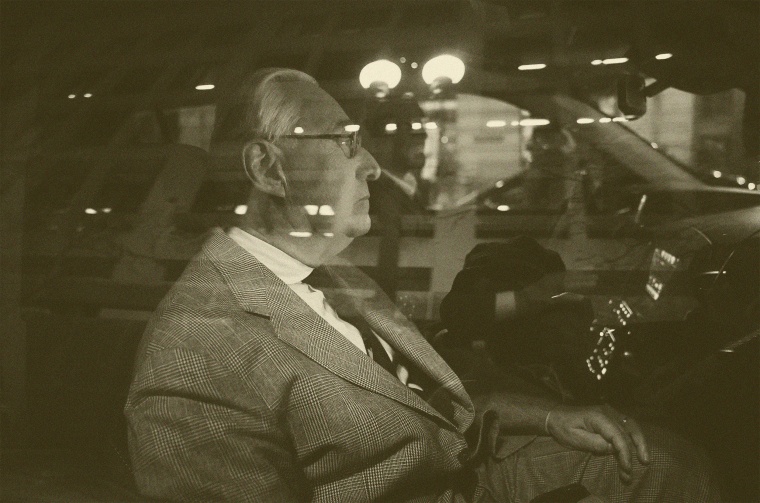WASHINGTON — In his final statement to the jury in the trial of political operative Roger Stone, federal prosecutor Michael Marando sought to boil the case down to a simple and stark premise.
"I know we live in a world nowadays with Twitter, tweets, social media, where you can find any political view you want," he said. "However, in our institutions of self-governance — courts of law or committee hearings, where people under oath have to testify — truth still matters."
Marando didn't mention President Donald Trump in that portion of his closing — he didn't have to. He and his colleagues had already made Trump a central character in the trial that ended with a conviction of the president's longtime associate on seven felonies — a trial that presented new information about the Trump campaign's zeal to capitalize on Russia's election interference in 2016.
Prosecutors argued that Stone, charged with obstructing a Congressional investigation, lied to Congress because the truth was "terrible" for Trump. They presented evidence painting a picture of a candidate who was actively involved in his campaign's effort to benefit from hacked emails obtained by WikiLeaks that were the fruits of a Russian intelligence operation. And they presented phone records and testimony suggesting that Trump didn't tell the truth in written answers to special counsel Robert Mueller, when Trump said he didn't remember ever discussing WikiLeaks with Stone.
"Trump was in the conspiratorial loop," said Glenn Kirschner, a former federal prosecutor and NBC News legal analyst who watched the trial. "He was in the hard collusion loop by virtue of him having phone calls in real time with Roger Stone while these email dumps were in progress."
But Joyce Vance, another former prosecutor and NBC news legal analyst, said she's not convinced the government had the evidence "to establish beyond a reasonable doubt that there was conspiracy between the campaign and the Russians. Does it strongly suggest it? Yes. But as long as the central figures destroy evidence, or are unavailable as witnesses, as long as the president ducks testimony, then it’s difficult to have evidence to establish beyond a reasonable doubt."
Phone records introduced as evidence in the trial show Stone called Trump on the very day in June 2016 that the world learned that the Democratic National Committee had been hacked by the Russians. The records show that Trump spoke to Stone at key moments during the summer of 2016 as Stone was single-mindedly seeking access to the stolen emails from Julian Assange, the WikiLeaks founder. Steve Bannon, who led the Trump campaign, testified that Stone was considered the "access point" to WikiLeaks.
Trump mentioned WikiLeaks 145 times in the last month of the campaign alone, according to an NBC News analysis.
"This WikiLeaks is like a treasure trove," Trump said a few days before the election at an appearance in Michigan.
Asked to respond to the new evidence, Jay Sekulow, Trump's personal attorney, said the president's written statements to Mueller stand.
"I spoke by telephone with Roger Stone from time to time during the campaign. I have no recollection of the specifics of any conversations I had with Mr. Stone between June 1, 2016 and November 8, 2016," Trump wrote in his statements to Mueller. "I do not recall discussing WikiLeaks with him, nor do I recall being aware of Mr. Stone having discussed WikiLeaks with individuals associated with my campaign, although I was aware that WikiLeaks was the subject of media reporting and campaign-related discussion at the time."
Democrats have long called that statement a lie. If prosecutors believe Trump was telling the truth, it wasn't evident from their comments at the trial. They called former Trump deputy campaign chairman Richard Gates, who testified he overheard Stone calling Trump about WikiLeaks, which was leaking embarrassing Democratic emails. After the call, Gates said Trump told him that more disclosures were coming.
"Roger Stone knew that if this came out it would look really bad for his longtime associate, Donald Trump," prosecutor Jonathan Kravis said. "So he lied to the committee."
Prosecutors didn't expressly accuse Trump of acting improperly by ordering Stone to pursue the emails hacked by the Russians. They noted that the government didn't know what was said in the Trump-Stone phone calls — the FBI wasn't wiretapping either man.
But "those are the only reasonable inferences you can draw from the evidence," Kirschner said. "Everybody who watched the trial couldn't help but draw those reasonable inferences."
Details about the Trump campaign's efforts to pursue hacked Democratic emails appear to have been covered in Volume I of the Mueller report, but the section is almost entirely blacked out, because the Stone case was still pending when the report was released.
In that sense, the Stone trial served as a sort of final chapter of the Mueller report. It unfolded as much of the country and the news media was focused on the Ukraine impeachment drama, which at its heart is about whether Trump abused his office to pressure a foreign government to help his 2020 election campaign.
If the Stone trial revealed anything, it showed that Donald Trump and the people around him had no problem making use of hacked emails that were the fruits of foreign election interference.
Or, as prosecutor Kravis put it, "trying to fish for information from WikiLeaks, knowing it had been hacked by a foreign government."

